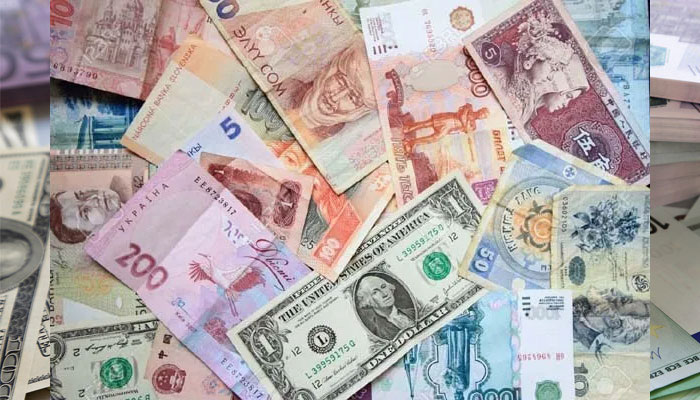Inactive taxpayers lose access to forex bank accounts
KARACHI: Banks have refused to facilitate transactions in foreign exchange accounts of taxpayers whose names don’t appear in active taxpayer list (ATL) because of late filing of returns, people familiar with the matter said on Wednesday.
The accountholders complained that their banks stopped their transactions on the context that their names are not included in ATL. They have been facing the hassle since the issuance of the new ATL for tax year 2020 on March 1.
“Half of return filers have become inactive after the new ATL,” a bank manager said, requesting anonymity. They need to pay surcharge to be included in the ATL.
Surcharges are Rs1,000 for individuals, Rs10,000 for association of persons and Rs20,000 for company.
While banks seem to be going by the book to facilitate filers, the undefined terminology of a filer in the law creates questions over their action, according to tax experts.
In April 2018, the government brought an amendment into the Protection of Economic Reform Act 1992 to document the transactions through foreign currency accounts. Under the legal change, transactions were allowed for those who were filers as defined in the Income Tax Ordinance 2001.
“Foreign currency accounts can be fed by remittances received from abroad, travellers cheques issued outside Pakistan (whether in the name of account holder or in the name of any other person) and foreign exchange generated by encashment of securities issued by the government of Pakistan. A foreign currency account of a citizen of Pakistan can also be fed with cash foreign currency only if the account holder is a filer as defined in Income Tax Ordinance 2001,” the law states.
However, when the amendment was notified the definition of the filer under a clause 23A of section 2 of the Income Tax Ordinance 2001 was “a taxpayer whose name appears in the active taxpayers list issued by the board [Federal Board of Revenue].”
The clause was omitted through the Finance Act 2019.
Since the income tax law is silent on the term ‘filer’, general explanation should prevail and a late filer should be treated as a filer, tax practitioners said. The late filer, who is not on the active taxpayer list, should be treated as a return filer for the purpose of protection of economic reform law.
An ex-FBR official Badaruddin Qureshi said the concept of filer and non-filer was introduced through Finance Act 2014 with objectives to discourage non-filers by imposing higher rates of withholding tax.
Qureshi said now a late filer of tax returns needs to pay surcharge to appear on the ATL to get benefit of reduced rates of withholding taxes. “An appropriate amendment is needed in relevant laws to define the filer,” he said.
-
 Woman Calls Press ‘vultures’ Outside Nancy Guthrie’s Home After Tense Standoff
Woman Calls Press ‘vultures’ Outside Nancy Guthrie’s Home After Tense Standoff -
 Allison Holker Gets Engaged To Adam Edmunds After Two Years Of Dating
Allison Holker Gets Engaged To Adam Edmunds After Two Years Of Dating -
 Prince William Prioritises Monarchy’s Future Over Family Ties In Andrew Crisis
Prince William Prioritises Monarchy’s Future Over Family Ties In Andrew Crisis -
 Timothée Chalamet Turns Head On The 'show With Good Lighting'
Timothée Chalamet Turns Head On The 'show With Good Lighting' -
 Bucks Vs Thunder: Nikola Topic Makes NBA Debut As Milwaukee Wins Big
Bucks Vs Thunder: Nikola Topic Makes NBA Debut As Milwaukee Wins Big -
 King Charles Breaks 'never Complain, Never Explain' Rule Over Andrew's £12 Million Problem
King Charles Breaks 'never Complain, Never Explain' Rule Over Andrew's £12 Million Problem -
 Casey Wasserman To Remain LA Olympics Chair Despite Ghislaine Maxwell Ties
Casey Wasserman To Remain LA Olympics Chair Despite Ghislaine Maxwell Ties -
 Shaun White Is Back At The Olympics But Not Competing: Here’s Why
Shaun White Is Back At The Olympics But Not Competing: Here’s Why -
 Breezy Johnson Engaged At Olympics After Emotional Finish Line Proposal
Breezy Johnson Engaged At Olympics After Emotional Finish Line Proposal -
 King Charles Wants Andrew To 'draw A Line' Under Epstein Issue
King Charles Wants Andrew To 'draw A Line' Under Epstein Issue -
 John Wick Game Confirmed With Keanu Reeves And Lionsgate Collaboration
John Wick Game Confirmed With Keanu Reeves And Lionsgate Collaboration -
 Gigi Hadid Feels 'humiliated' After Zayn Malik's 'pathetic' Comment: Source
Gigi Hadid Feels 'humiliated' After Zayn Malik's 'pathetic' Comment: Source -
 Olympics Men Hockey Game: McDavid, Crosby Power Canada Past Czechia
Olympics Men Hockey Game: McDavid, Crosby Power Canada Past Czechia -
 Sony PlayStation State Of Play Reveals 'Castlevania' And 'Metal Gear' Return
Sony PlayStation State Of Play Reveals 'Castlevania' And 'Metal Gear' Return -
 Ontario Tuition Freeze Ends, Allowing Colleges And Universities To Raise Fees
Ontario Tuition Freeze Ends, Allowing Colleges And Universities To Raise Fees -
 King Charles Should Apologise To All Rape Victims, Says New Poll
King Charles Should Apologise To All Rape Victims, Says New Poll




